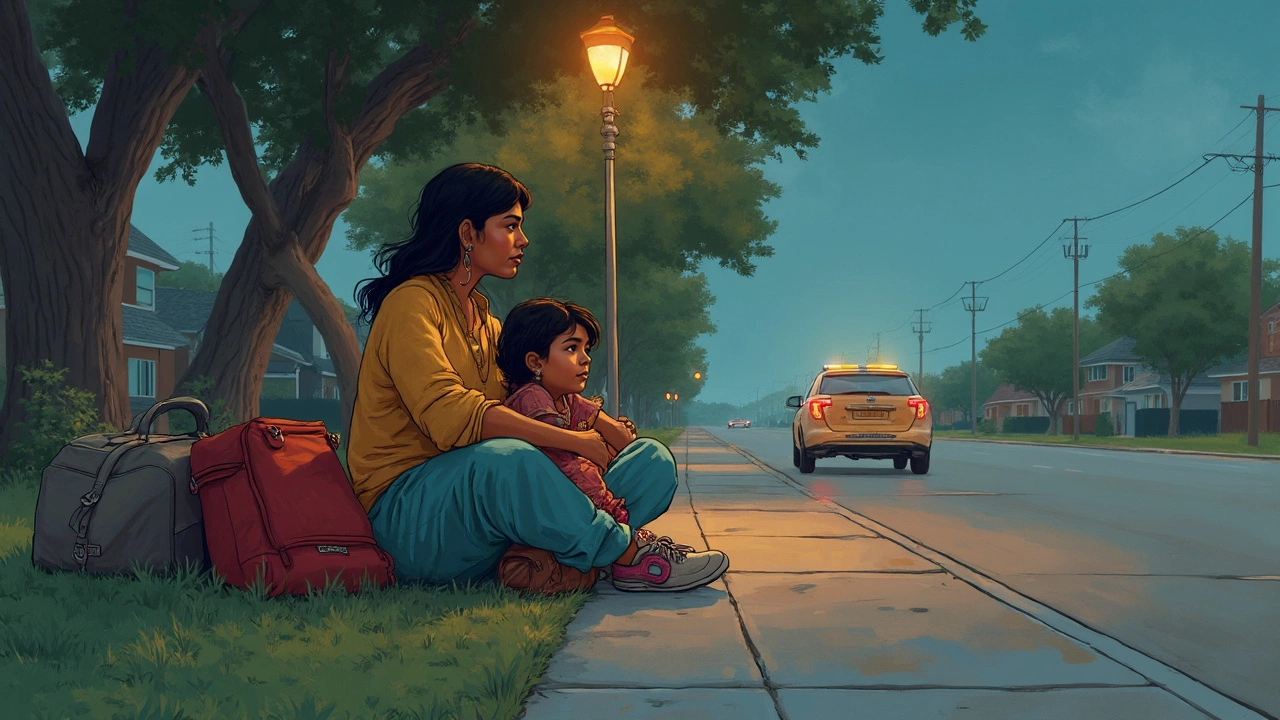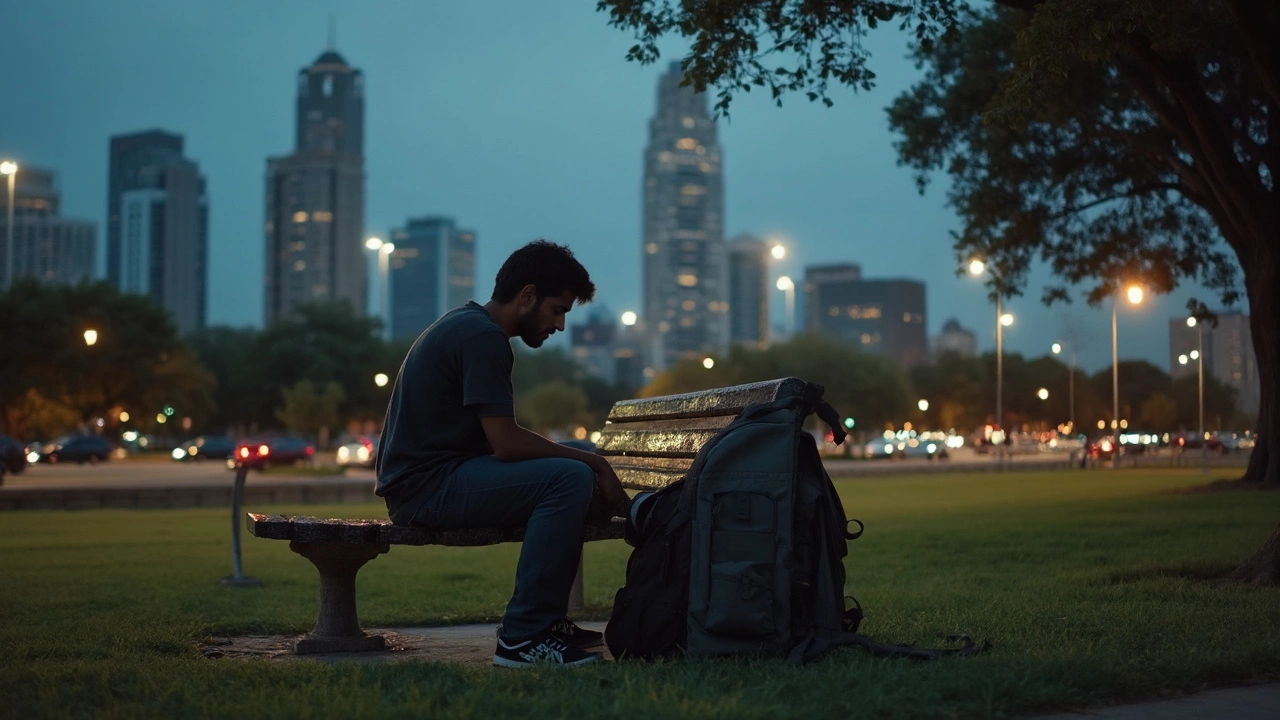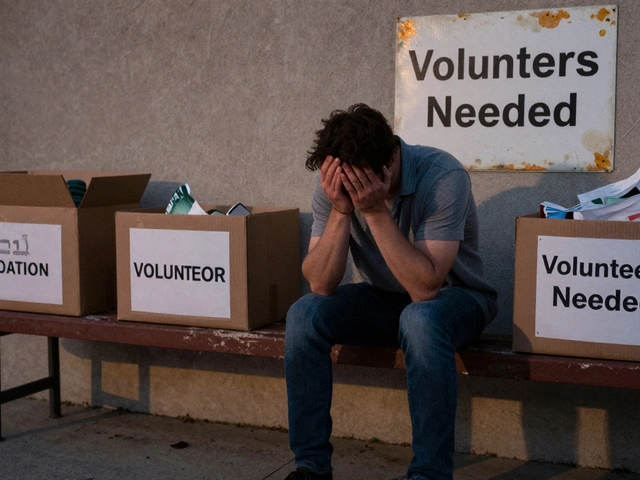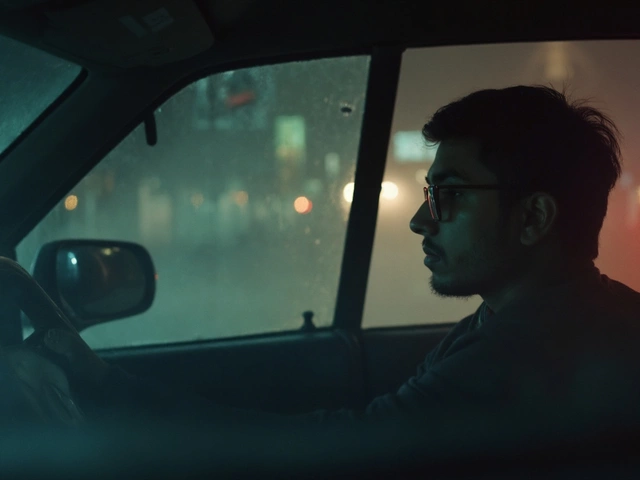You’d think catching a few winks on a park bench or in your car would be no big deal, but Texas has a web of rules that say otherwise. The big thing to know is there’s not just one law for the whole state—rules about sleeping outside depend a lot on where you are and what specific city you’re in.
Since 2021, Texas made it a statewide crime to camp or sleep in public places with bedding, tents, or other shelter (think: blankets, sleeping bags, or tarps) if there’s no permission. Cities like Austin tried to let it slide, but the state overruled them with a law that makes “camping in public” a misdemeanor, which means you can get fined or even arrested. So, if you’re found setting up a spot to sleep outdoors in a park, under a bridge, or on a sidewalk, you’re officially breaking the law unless you’ve got the city’s OK or you’re in a designated campsite.
- How Texas Law Handles Sleeping in Public
- Local Rules vs. State Law: What’s the Difference?
- Risks and Reality: What Happens If You’re Caught?
- Practical Alternatives and Help in Texas
How Texas Law Handles Sleeping in Public
The rules around sleeping in public in Texas have gotten a lot stricter since 2021. Before that, each city did its own thing, but the state stepped in with House Bill 1925. This law makes it illegal to camp on public property, and the wording is pretty broad. Setting up bedding, a sleeping bag, or any kind of shelter—even just a blanket—counts as “camping.” Police don’t care if you’re homeless or just taking a nap in your car if you’re on public land without permission.
If you’re charged, it’s a Class C misdemeanor, kind of like getting a ticket for a traffic violation. Usually, that means a fine of up to $500. But if someone refuses to move or does it again, they can face arrest. The law covers places like parks, sidewalks, underpasses, and even public parking lots. It doesn’t matter if it’s 100 degrees out or if you’ve got nowhere else to go.
Texas lawmakers say the law is about public safety, but it mainly affects people who are homeless and have no other options. What makes this law different is that it cancels out city rules that might have allowed camping. Cities can’t make their own rules more relaxed. If a town ignores the state law, Texas can withhold funding. So, there’s not much wiggle room for local governments.
Most cities have their own local ordinances about sleeping in public. Sometimes, they ban sleeping in cars overnight. Other times, they’ll clear out camps even if it’s just a tent or two. In 2023, police in Houston cleared 87 encampments from public parks—so enforcement is no joke.
Here’s a quick look at how the law stacks up, based on real data:
| Key Fact | Details |
|---|---|
| State Law Applies | Everywhere in Texas, all cities |
| Penalty | Up to $500 fine, possible arrest on repeat |
| Items Considered 'Camping' | Bedding, sleeping bags, tents, tarps, makeshift shelter |
| Common Places Enforced | Parks, sidewalks, bridges, public parking lots |
| Local Ordinance Power | Overruled by state law |
The bottom line? If you plan to sleep in public anywhere in Texas, you risk a fine or worse. The law is broad and covers just about any spot that’s not private property or an official campsite.
Local Rules vs. State Law: What’s the Difference?
This is where things get messy. In Texas, even if a city seems more relaxed, the state law rules the day. For years, some bigger cities—especially Austin—let folks sleep outside if they kept out of people’s way. That changed in 2021, when the Texas government said, nope, everyone in the state has to follow the same rule: no public camping or sleeping out in the open unless it’s an official campsite or the city gives explicit permission.
Before this law, local city councils decided what was okay and what wasn’t. Now, even if Austin’s voters want open camping, the state says they can’t allow it. Cities can set up their own shelters or even approve certain spots, but they can’t ignore the state ban on public sleeping with bedding or shelter gear.
- Without city permission, sleeping under a bridge, in parks, or on sidewalks can get you ticketed or arrested—no matter how common it might look.
- Some cities go even further, not just banning sleeping, but making panhandling or “loitering” grounds for tickets, too.
- Car sleeping is a gray area—some cities crack down, others don’t, but the state law mostly covers outdoor camping, not just napping in your car.
If you want to know what happens in the big cities, here’s a quick look:
| City | Local Camping Rules |
|---|---|
| Austin | Used to allow it, now follows state ban. Public camping is illegal except in approved sites. |
| Dallas | No camping or sleeping in public; police enforce state law strictly. |
| Houston | Bans tents and camping; police usually give warnings before ticketing. |
| San Antonio | Strict ban in downtown and city parks; offers more shelter beds for folks stopped by police. |
So the bottom line? Even if you see folks out sleeping in public, don’t assume it’s legal, especially after the changes in 2021. This is one law that gets enforced more often than you’d think—especially in places where residents or businesses complain to the city.
And don’t forget, the sleep in public crackdown really came out of high-profile fights between state and city leaders. The clash isn’t just about rules—it’s about who gets to decide what life on the street looks like in Texas.

Risks and Reality: What Happens If You’re Caught?
Getting caught sleeping in public in Texas isn’t just embarrassing—it can land you in real trouble. Since 2021, the state-level camping ban makes it a crime to set up bedding or shelter in any public place without permission. If an officer finds you sleeping under a bridge, in a park, or on a sidewalk, things can move fast.
You’ll usually be asked to move first. Police in most Texas cities are supposed to give a verbal warning before anything else. If you pack up and go, you might escape further hassle. But if you don’t leave or you come back to the same spot, the consequences get more serious.
- First-time offense: It’s a Class C misdemeanor, which means you could get a ticket—usually a fine up to $500. That’s a huge hit for someone already struggling.
- Repeat offenses: If you keep getting caught, you might face arrest, especially if there’s evidence you’ve refused help or ignored multiple warnings. Some cities have even started to tow away vehicles used for sleeping, especially near highways or downtown.
What a lot of people don’t realize is that having a criminal record for these fines makes getting housing and jobs even harder. Some Texas counties do offer the chance for help instead of punishment—like referrals to shelters or social services—but there’s no rule saying they have to. And not every town has good homeless laws support systems in place.
If you’re facing this kind of situation, don’t ignore court dates or tickets. Penalties can snowball fast, turning a night outdoors into months of legal headaches. If you can, get help from local organizations or legal clinics—they’ll know what options are available based on where you are.
Practical Alternatives and Help in Texas
If you’re worried about getting in trouble for trying to sleep in public in Texas, you do have some options. There are a bunch of places and organizations ready to help, even though the state’s laws can seem harsh.
The easiest way to stay legal is to use one of the homeless shelters spread out across major Texas cities. For example, Dallas has The Bridge Homeless Recovery Center, Austin runs the ARCH (Austin Resource Center for the Homeless), and Houston has the Star of Hope Mission. Shelters like these offer not just a bed, but meals, showers, and sometimes even help with jobs or housing.
- The Bridge (Dallas): Offers night shelter and daily services; open 24/7 to adults.
- ARCH (Austin): Emergency shelter for adults with basic services and a path to longer-term housing.
- Star of Hope (Houston): Family, women, and men’s shelters plus case management and job support.
Smaller towns might not have full-scale shelters, but they usually know where the closest one is. Local police or libraries can sometimes give directions or phone numbers, and 2-1-1 (just dial it on your phone) will give you a list of local resources anywhere in Texas.
If you’re not able to get to a shelter, churches and nonprofits sometimes offer warming centers during cold snaps, or cooling centers when it’s blazing hot. Even some city recreation centers open up for overnight stays during weather emergencies.
Legal help is another thing to keep in mind. Groups like Texas RioGrande Legal Aid or the Texas Homeless Network can guide you through sticky situations if you get a ticket for public camping. They know the ins and outs of the local laws and might be able to help you avoid fines.
| City | Emergency Shelter Beds | Key Services |
|---|---|---|
| Dallas | Over 1,200 | Case management, healthcare, job help |
| Austin | About 800 | Emergency beds, meals, housing support |
| Houston | Roughly 1,500 | Family shelters, job programs, daily needs |
The bottom line: Texas does have real help if you’re caught without a safe place. It takes a bit of digging—sometimes patience to deal with waitlists or entry rules—but you aren’t totally stuck. If you need help, don’t be afraid to ask for it, whether that’s from a shelter worker, a community hotline, or even a city office. You deserve a safe place to sleep, and there are people out there focused on getting you there.





